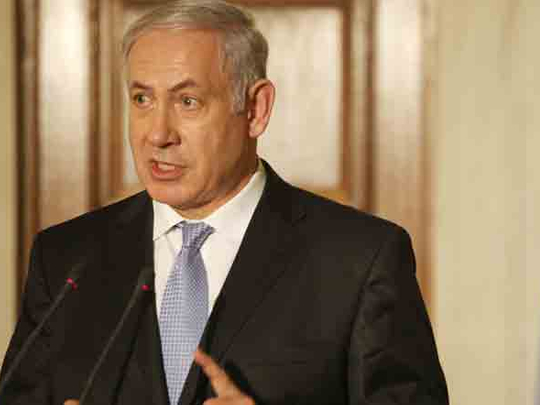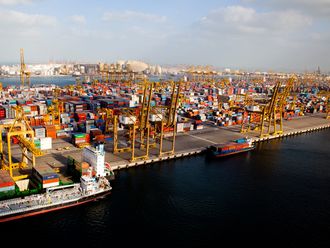
Direct Israeli-Palestinian peace negotiations started last week in Washington. The beginning of the direct peace talks was announced at a White House ceremony hosted by US President Barack Obama and to which he had invited, in addition to Israeli Prime Minister Benjamin Netanyahu and Palestinian President Mahmoud Abbas, President Hosni Mubarak of Egypt and King Abdullah II of Jordan.
Each spoke on the urgent need to achieve peace and emphasised its most fundamental requirements. Obama and King Abdullah highlighted the need to seize the opportunity and warned that time was running out.
Netanyahu spoke of the need to achieve peace with security for Israel; he declared that he had come to forge a historic compromise and lasting peace with the Palestinians.
Abbas spoke of the injustices suffered by the Palestinians, and emphasised the urgent need to halt Israeli colonisation in the Occupied Territories. In remarks he made and in an op-ed piece he published in The New York Times on August 31 (republished in Gulf News on September 2), Mubarak urged the Israelis to make no mistake about the fact that continuing Jewish colony construction was incompatible with peace.
The Palestinian and Israeli delegations met on Thursday and agreed to meet again two weeks later. But the shadow of Israeli colonies will be hanging over the negotiations. This is because the next meeting will fall just a few days before Netanyahu is scheduled to announce either the end of the moratorium on colony construction or its extension in one form or another. Netanyahu has indicated on several occasions there had been no change to the cabinet decision to resume colony construction.
Historically, Israeli governments did not halt colony construction during peace negotiation. Under the Oslo peace process, the number of colonists increased dramatically from 222,000 in 1992 to 489,000 in 2010. The building of colonies — declared illegal by the International court of Justice and by the United Nations — was one of the means by which Netanyahu torpedoed the Oslo Accords — as he boastfully told a group of West Bank colonists on a videotape recently broadcast by Israeli TV and watched around the world on YouTube.
As to the character of the entire colony enterprise, it was described by the Israeli human rights group B'Tselem as "an instrumental, cynical, and even criminal approach to international law, local legislation, Israeli military orders, and Israeli law, which has enabled the continuous pilfering of land from Palestinians in the West Bank".
Yet, Washington has recently shifted the focus of its pressure from demanding that Israelis halt all colony construction to demanding that Abbas not be unduly concerned about colonies.
A Palestinian official reportedly told the Israeli newspaper Haaretz that Washington was exerting pressure on Abbas to stay in direct negotiations with Israel. The source warned that it would be politically impossible for Abbas to agree to a continuation of colony construction during direct negotiations with the Israelis. The Palestinian president, the source warned, will be forced to withdraw from the talks.
Withdrawal
Netanyahu may relish the prospect of Palestinian withdrawal from the negotiations, letting them accept responsibility for the failure of the talks. He would then proceed to implement an aggressive agenda for more colonies dividing the occupied Palestinian land and preventing contiguity, thus sabotaging the creation of a viable independent Palestinian state. Jewish colonists responded to the start of direct peace negotiations with defiance: they announced plans to launch new construction in at least 80 colonies in the West Bank.
Withdrawing from the direct negotiations only a few weeks after they were first convened would be an admission of failure, of both the peace process and Palestinian leadership.
It is possible that Abbas and the Palestinian National Authority (PNA) have a Plan B and that such a plan involves putting in motion the nightmare scenario that forced Netanyahu and other longtime opponents of Palestinian nationalism to accept the two-state solution as the lesser of the two evils — the bigger evil being the one-state solution. In this option the PNA would dissolve itself and Palestinians would demand Israeli annexation and citizenship — thus forcing Israel either to grant equal rights to the Palestinians and risk seeing the Arab citizens of Israel soon become the majority population.
If Abbas is caught between a rock and a hard place, Netanyahu, on the other hand, has a historic choice to make. He can act like a visionary statesman; end the occupation; recognise the injustice suffered by the Palestinians and their long-denied rights; end the illegality of colony building; and forge a historic partnership with the Palestinians to ensure peace, security, and prosperity. Or he can limit his vision to the possibility of revolt from his extreme right-wing coalition partners. In short, he has a unique chance to make history or be ignored by it.
Adel Safty is distinguished professor adjunct at the Siberian Academy of Public Administration, Russia. His new book, Might Over Right, is endorsed by Noam Chomsky.








